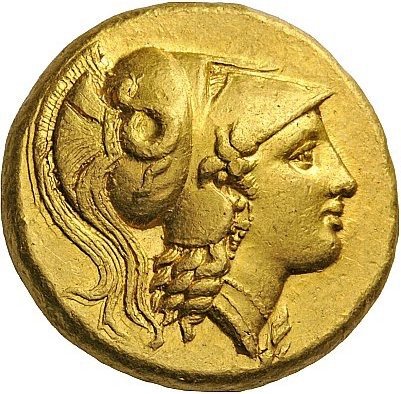
How to Learn Ancient Greek Coins
How to Learn Ancient Greek Coins: A Comprehensive Guide
Understanding ancient Greek coins is a fascinating journey into the art, culture, and economy of one of the most influential civilizations in history. For collectors, historians, and enthusiasts alike, mastering the study of ancient Greek coins requires knowledge of their designs, origins, and historical context. If you’re wondering how to learn about ancient Greek coins, this article will guide you step by step.
What Are Ancient Greek Coins?
Ancient Greek coins were minted between the 7th century BCE and the 1st century CE. These coins, often made of silver, gold, or bronze, were issued by Greek city-states and regions. Their unique designs feature gods, mythical creatures, and symbols that reflect the culture and history of the issuing city-state.
Why Learn About Ancient Greek Coins?
- Historical Significance: Each coin tells a story about the region, economy, and beliefs of ancient Greece.
- Artistic Beauty: Ancient Greek coins are renowned for their intricate designs, showcasing the artistry of their time.
- Numismatic Value: Learning about these coins can help collectors assess their rarity and value.
- Cultural Appreciation: Delving into ancient coinage deepens one’s understanding of Greek civilization.
How to Learn Ancient Greek Coins
1. Understand the Basics of Numismatics
Numismatics is the study of coins, currency, and related artifacts. Begin by familiarizing yourself with numismatic terms, such as:
- Obverse: The front side of the coin, often featuring a deity or ruler.
- Reverse: The back side, usually depicting symbols, animals, or inscriptions.
- Denomination: The value of the coin (e.g., drachma, obol).
Resources to Start With:
- Books on numismatics (e.g., “Greek Coins and Their Values” by David R. Sear).
- Online numismatic glossaries.
2. Study Ancient Greek Coin Denominations
Familiarize yourself with the various denominations used in ancient Greece:
- Drachma: A silver coin and the most common currency in ancient Greece.
- Obol: A smaller coin used for everyday transactions.
- Tetradrachm: Worth four drachmas, often used for significant trade.
- Stater: A high-value coin made of gold or silver.
Understanding these denominations is essential for identifying and evaluating coins.
3. Learn to Identify Coins by City-State
Each Greek city-state minted its own coins with unique designs. For example:
- Athens: Coins featured Athena and an owl, symbolizing wisdom and protection.
- Aegina: Sea turtles appeared on their coins, representing maritime dominance.
- Corinth: Pegasus, the mythical winged horse, adorned their coins.
Pro Tip: Use online databases and catalogs to identify coins based on their symbols and inscriptions.
4. Explore Ancient Coin Design and Symbolism
Designs on ancient Greek coins often depict:
- Gods and Goddesses: Athena, Zeus, Apollo, and others.
- Mythical Creatures: Pegasus, griffins, and more.
- Inscriptions: Names of city-states or rulers, written in ancient Greek.
Learning the meaning behind these designs enhances your appreciation of the coins.
5. Build a Collection
Hands-on experience is invaluable for learning about ancient coins. Start your collection by purchasing affordable coins, such as bronze obols. Ensure you buy from reputable dealers or auction houses.
Popular platforms for buying coins:
- Heritage Auctions
- CNG (Classical Numismatic Group)
- VCoins
6. Take Online Courses and Tutorials
Numerous online courses can teach you about ancient Greek coins. These courses cover topics like coin identification, history, and valuation.
Recommended platforms:
- Coursera: Offers history-focused courses.
- Udemy: Includes numismatic tutorials.
- YouTube: Provides free lectures by experts.
7. Visit Museums and Exhibitions
Museums often showcase collections of ancient Greek coins. Seeing these coins in person provides a deeper understanding of their craftsmanship and historical significance.
Notable museums with Greek coin collections:
- The British Museum, London.
- The Numismatic Museum of Athens.
- The Louvre, Paris.
8. Read Books on Ancient Greek Coins
Books provide in-depth knowledge about ancient Greek coinage. Some highly recommended titles include:
- “Greek Coins and Their Values” by David R. Sear.
- “A Handbook of Greek Coinage Series” by Oliver D. Hoover.
- “The Coinage of Ancient Greece” by Barclay V. Head.
9. Join Numismatic Societies and Forums
Joining a community of coin enthusiasts can enhance your learning. Numismatic societies often organize events, exhibitions, and workshops.
Popular organizations:
- American Numismatic Association (ANA)
- British Numismatic Society (BNS)
Online forums like CoinTalk and NumisForums are excellent for discussions and guidance.
10. Practice Identifying and Valuing Coins
Apply your knowledge by examining coins and estimating their value based on factors like:
- Condition: Well-preserved coins are more valuable.
- Rarity: Rare coins fetch higher prices.
- Historical Context: Coins linked to significant events or rulers are highly prized.
Tips for Beginners in Ancient Greek Coins
- Start Small: Begin with bronze coins, as they are more affordable.
- Verify Authenticity: Always buy from trusted sources to avoid counterfeit coins.
- Be Patient: Learning about ancient coins is a gradual process that requires time and dedication.
Conclusion
Learning about ancient Greek coins is a rewarding pursuit that combines history, art, and numismatics. By following the steps outlined above—understanding the basics, studying denominations, identifying city-states, and engaging with resources—you can master the art of ancient coin collection and analysis.
Whether you’re a collector, historian, or curious enthusiast, ancient Greek coins offer a tangible connection to the past and a deeper appreciation of one of history’s greatest civilizations.
Start your journey today, and uncover the stories hidden within these timeless pieces of history!
Leave a Reply